
@’s by Chris Claremont!!!
 Lyzard here. Before Chris Claremont’s panel at Comicpalooza in Houston, I thought I had a pretty good idea of the man who brought us new characters like Rogue, Shadowcat, Mystique, and Gambit, along with writing the storylines of “The Dark Phoenix Saga” and “Days of Future Past”. But I soon learned after his talk and our interview that this man is as complex as the universe he helped to create.
Lyzard here. Before Chris Claremont’s panel at Comicpalooza in Houston, I thought I had a pretty good idea of the man who brought us new characters like Rogue, Shadowcat, Mystique, and Gambit, along with writing the storylines of “The Dark Phoenix Saga” and “Days of Future Past”. But I soon learned after his talk and our interview that this man is as complex as the universe he helped to create.For instance, did you know Mr. Claremont was a fan of Doctor Who? And spoilers apparently, since he wanted to discuss the new John Hurt reveal. In retrospect this fandom seems obvious for a man that dealt with such intricacies of time travel and dimension hopping in his own writing for THE X-MEN. Did you also know that he pursued a double major in political theory and acting, both of which came in handy in the unlikeliest of ways? X-MEN tackled current issues of its time, civil rights and feminism in particular, fearlessly. As for the acting, he’s still got a knack for it. His oral storytelling is just as engaging as his written work, he commands attention, and successfully improvises. At the panel, a young woman dressed as Scarlet Witch stood up and Claremont screamed, “Why did you ruin my universe!” Kudos to the girl who played along and without skipping a beat spout back “because you killed my children!” A great example of how much he loves his fans and they love him, which led into my discussion with him later that day.
LYZARD: When you come to conventions like these, are you surprised, even after all these years, by the pedestal your fans put you on?
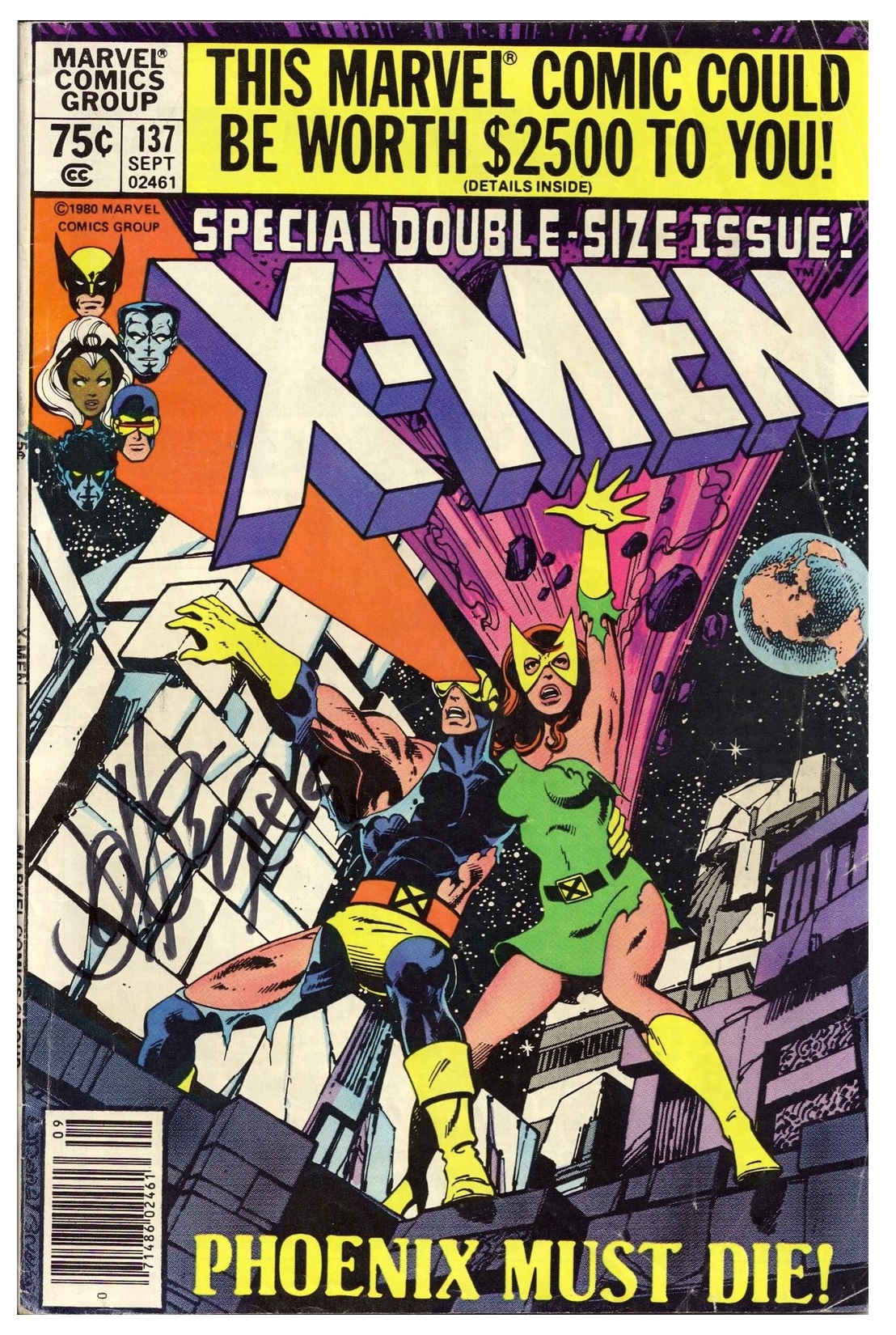 CHRIS CLAREMONT (CC): Well, surprised is probably not… delighted I think is a better word. I mean, I, and for different reasons now than when I started, because the awareness now is for a lot of people these are second generation readers so it’s the awareness that what I did not only had an impact on the audience of twenty five, thirty years ago, but on the audience of today who might be their children or in some cases, God help me, their grandchildren, who are picking up the series for the first time, the characters for the first time and are just entranced by it and I think any writer, you know I would not be surprised if you would could get a similar reaction from Conan Doyle, discovering a Sherlock Holmes on the BBC ,which is really good, and a Sherlock Holmes on CBS this year, which is really good, and you’ve got Robert Downey Jr. movies, which are really good. So from the point of a view of a writer, finding an audience that’s still appreciating what he does, part of that is what we live for but it also hopefully leaves a measure of encouragement for that whatever new material I might do will have an equally positive chance of success.
CHRIS CLAREMONT (CC): Well, surprised is probably not… delighted I think is a better word. I mean, I, and for different reasons now than when I started, because the awareness now is for a lot of people these are second generation readers so it’s the awareness that what I did not only had an impact on the audience of twenty five, thirty years ago, but on the audience of today who might be their children or in some cases, God help me, their grandchildren, who are picking up the series for the first time, the characters for the first time and are just entranced by it and I think any writer, you know I would not be surprised if you would could get a similar reaction from Conan Doyle, discovering a Sherlock Holmes on the BBC ,which is really good, and a Sherlock Holmes on CBS this year, which is really good, and you’ve got Robert Downey Jr. movies, which are really good. So from the point of a view of a writer, finding an audience that’s still appreciating what he does, part of that is what we live for but it also hopefully leaves a measure of encouragement for that whatever new material I might do will have an equally positive chance of success.LYZARD: Representation in comics continues to be a thorny issue. You were one of the pioneers of that, writing plenty of well fleshed out female characters, and characters of all colors. What would you say made you succeed where so many others don't even now?
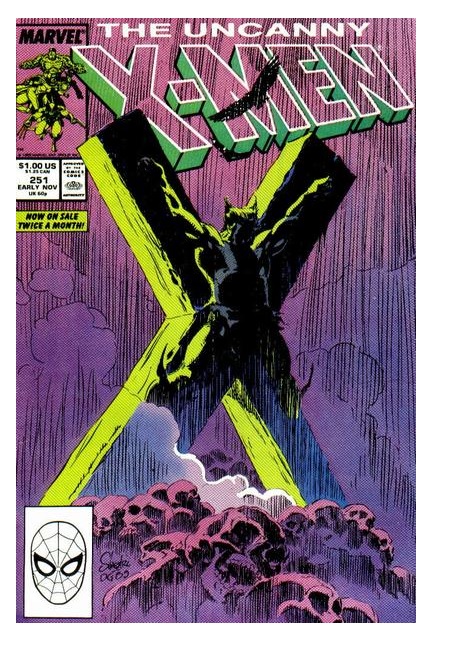 CC: Part of me would answer instinctively pure dumb luck. I have no idea; I just keep my fingers crossed and hope I know what I’m doing. The essence in terms of the X-men as a concept is the idea of being an outsider, a stranger in a strange land if you want to grab another cliché and that I do know about. When I was a boy, I made the mistake of wearing the clothes I’d wear to school in England to my first school in Florida: shorts, knee socks, a tie, a blazer. Didn’t go over well and I never did it again. So the idea of what it’s like to be an outsider, of trying to fake integration into a society and fit in is something that is a part of my past and hopefully that means its applicable in other respects to other aspects of life, like the X-men.
CC: Part of me would answer instinctively pure dumb luck. I have no idea; I just keep my fingers crossed and hope I know what I’m doing. The essence in terms of the X-men as a concept is the idea of being an outsider, a stranger in a strange land if you want to grab another cliché and that I do know about. When I was a boy, I made the mistake of wearing the clothes I’d wear to school in England to my first school in Florida: shorts, knee socks, a tie, a blazer. Didn’t go over well and I never did it again. So the idea of what it’s like to be an outsider, of trying to fake integration into a society and fit in is something that is a part of my past and hopefully that means its applicable in other respects to other aspects of life, like the X-men.LYZARD: Were you a fan of the early X-MEN?
CC: I was a fan of Roy Thomas and Neal Adams’ issues of the initial series, Stan and Jack’s stuff was the usual Stan and Jack’s stuff, a lot of the material in the middle was not as good so I liked the concept I wasn’t… the thing about the new X-MEN, the reboot, is that Marvel was expanding the focus from what was essentially a team of five, six if you want to count Havoc, white upper middle class Americans, you know five boys and a girl, very limited perspective and expanding it globally so that we had a German in Night Crawler, a Russian in Colossus, an Irishman in Banshee, an African in Ororo and Stan’s ambition as a publisher was to see if we could expand to a more world wide market. My way of looking at it was the beauty of the States is it’s a nation of immigrants, so we can all play, it’s something that speaks to us all.
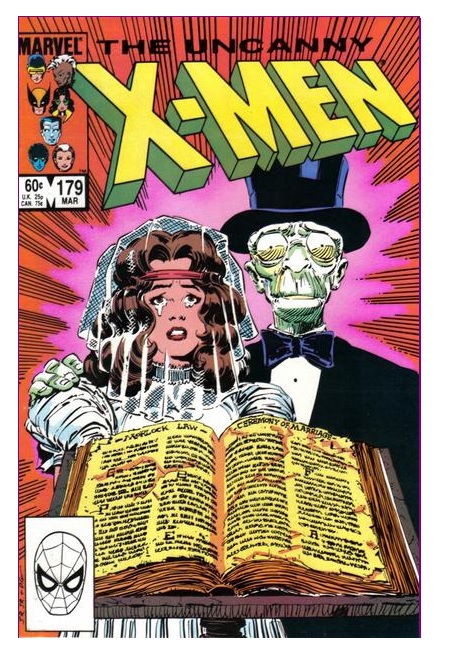 LYZARD: What do you consider to be your proudest moment as a comic writer, X-MEN or otherwise?
LYZARD: What do you consider to be your proudest moment as a comic writer, X-MEN or otherwise?CC: Part of me can answer X-MEN, part of me can answer otherwise simply as I’ve done enough material that’s my own, the Marada series with John Bolton for example. I don’t feel limited by or constrained to the X-MEN, for the most part it’s all been a ridiculously delightful amount of fun so I try not to play favorites.
LYZARD: You’ve worked in both prose and comics. What is the difference with the writing process?
CC: In prose there are no pictures. You’ve got to throw in the thousand words for each image. There’s no collaborator for better or worse, no one to talk to other than yourself, but also in terms of comics each issue is effectively a short story. When I started it was 17 pages then it went up to 22, I don’t even know how big the stories are now. You structure things out. When people ask me what’s my favorite story on the X-MEN, and I tell them issues #94-279 inclusive. To me it’s one story. It’s chopped into a lot of little chapters, but it’s one ongoing continuous story. A novel is theoretically a coherent whole that’s divided into chapters, you start at the beginning and you go through to the end and hopefully it all forms a coherent mass.
LYARD: Can you talk about any new projects of yours or are they all hush-hush?
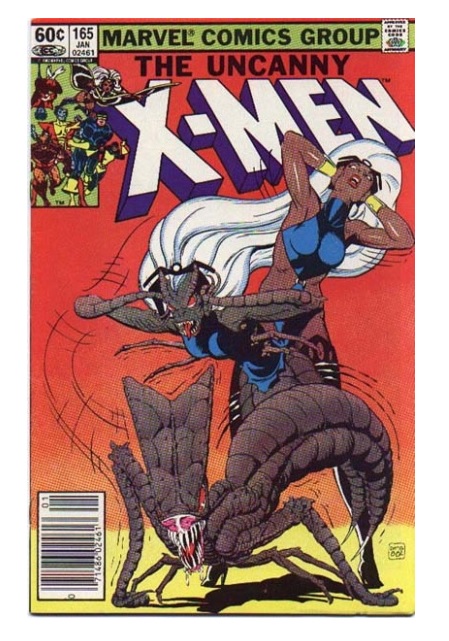 CC: It’s not so much you can’t talk about them. I feel nervous about talking about books that haven’t sold simplify because “what if they don’t sell?” Do I feel like an idiot for talking about it? Does it make them less valid, less valuable? I did a novel two years ago that I thought was pretty good at the time. Sent it out to publishers, they didn’t like it. I was reading it last year; I didn’t like it. So I tore it apart and now I’m rewriting it. Problem is is knowing whether it will ever be saleable is a whole different question, you know, but it’s done. The difference with comics or something like THE X-MEN, it’s a defined reality. You get paid. You write; you get paid. But the disadvantage is Marvel owns everything. But you get paid. So, there’s a plus and a minus. But that’s sort of the nature of the game.
CC: It’s not so much you can’t talk about them. I feel nervous about talking about books that haven’t sold simplify because “what if they don’t sell?” Do I feel like an idiot for talking about it? Does it make them less valid, less valuable? I did a novel two years ago that I thought was pretty good at the time. Sent it out to publishers, they didn’t like it. I was reading it last year; I didn’t like it. So I tore it apart and now I’m rewriting it. Problem is is knowing whether it will ever be saleable is a whole different question, you know, but it’s done. The difference with comics or something like THE X-MEN, it’s a defined reality. You get paid. You write; you get paid. But the disadvantage is Marvel owns everything. But you get paid. So, there’s a plus and a minus. But that’s sort of the nature of the game.LYZARD: Having been in this busy for so long, seeing it change, what direction would you like to see the comic book industry head in?
CC: Well, if it were me I’d rather it were a more egalitarian, libertarian reality that I understand there is material that is company owned, though I find that for example with the contracts that Marvel were promulgating back in the 80s were far more, to me, equitably balanced between the needs of the company and the needs of the creators than they are today, and creator-owned material. I think that it would be of value to a publisher to do both. There are those that in Marvel that feel it is more appropriate to focus on Marvel owned material simply because it’s Marvel owned material and they want to push their stuff more than others. You know it’s the same argument every writer has with every publisher. Just always felt like you had a better chance of winning or getting a balanced response from a Random House or a Bantom, but you never know.
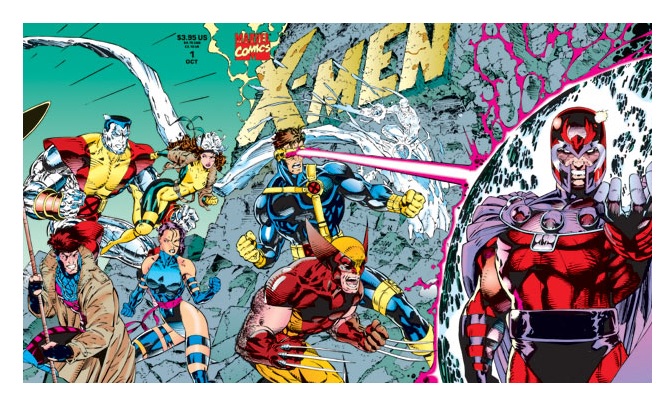 LYZARD: And finally, in the end, what do you wish to be remembered for, what do you want your legacy to be?
LYZARD: And finally, in the end, what do you wish to be remembered for, what do you want your legacy to be?CC: I don’t’ have a clue. That’s my answer to both questions. It’s just where to me it should be done as a balance, the creative needs of the company versus the desires of the creators. I think I’m a lousy person to ask to evaluate my stuff simply because I’m not done yet. What’s the best story I’ve ever written? Presumably the one I’m working on now. I have no real answer because I can’t be objective because as I’ve said I’m still in the middle of the creative process. You be better asking off my kids, a critic, the dog, they’d probably be far more knowledgeable than I.
Lyzard is Lyz Reblin, a graduate student at the University of Texas pursuing a master's degree in Media Studies... which is just a fancy way of saying she plays a lot video games, watches far too many horror films, and then tries to pass it all off as "research."
Proofs, co-edits & common sense provided by Sleazy G
